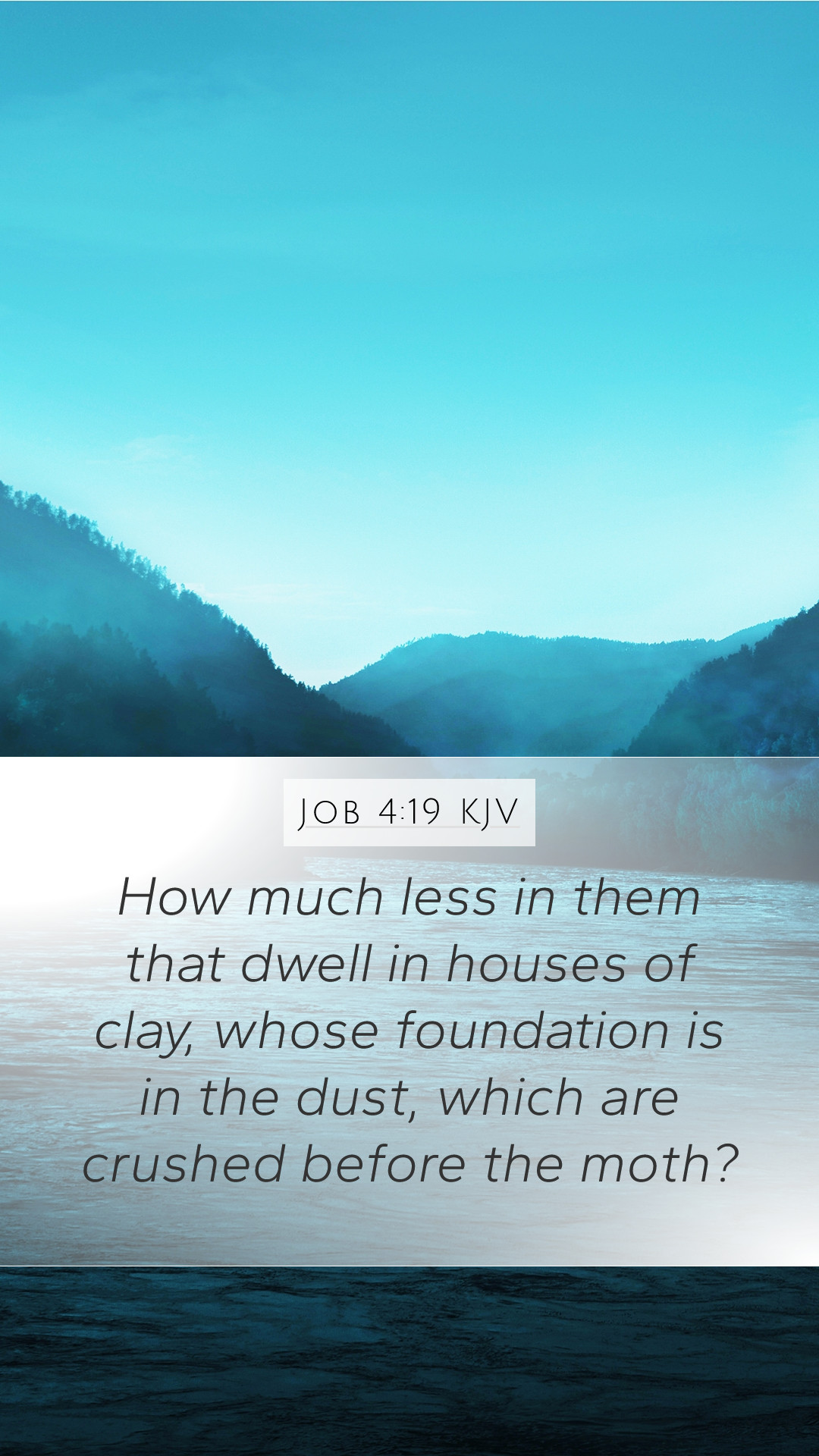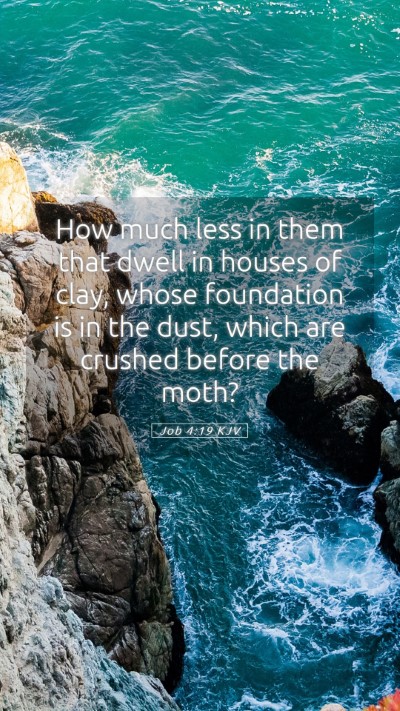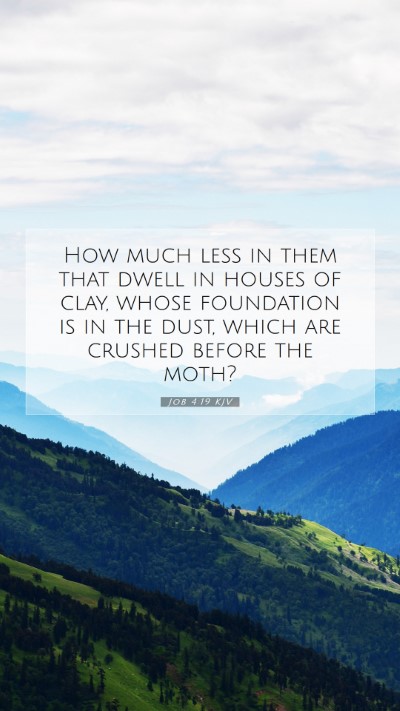Old Testament
Genesis Exodus Leviticus Numbers Deuteronomy Joshua Judges Ruth 1 Samuel 2 Samuel 1 Kings 2 Kings 1 Chronicles 2 Chronicles Ezra Nehemiah Esther Job Psalms Proverbs Ecclesiastes Song of Solomon Isaiah Jeremiah Lamentations Ezekiel Daniel Hosea Joel Amos Obadiah Jonah Micah Nahum Habakkuk Zephaniah Haggai Zechariah MalachiJob 4:19 Meaning
What is the meaning of Job 4:19?
How much less in them that dwell in houses of clay, whose foundation is in the dust, which are crushed before the moth?
Job 4:19 Bible Verse Meaning
Understanding Job 4:19
Job 4:19 states: "How much less in them that dwell in houses of clay, whose foundation is in the dust, which are crushed before the moth?" This verse reflects on the fragility of human life and the insignificance of our earthly existence in contrast to divine power and eternal truths.
Bible Verse Meanings
This verse highlights the transient nature of human beings juxtaposed with the eternal nature of God. The imagery of clay houses signifies the temporary and fragile state of human life, reminding us that we are mortal and may easily be destroyed like a fragile structure.
Bible Verse Interpretations
- Matthew Henry's Commentary: Henry emphasizes the contrast between human weakness and divine strength. He points out that just as clay cannot withstand the elements, humans, created from dust, are equally vulnerable to mortality.
- Albert Barnes' Notes: Barnes offers insight that suggests the verse serves as a reminder of humility, indicating that if even powerful beings like angels are frail, how much more are humans, destined for decay and destruction?
- Adam Clarke's Commentary: Clarke delves into the imagery of being "crushed before the moth," illustrating that life can end unexpectedly, akin to how a moth can destroy a garment unnoticed.
Bible Verse Understanding
This verse encourages readers to reflect on their existence and recognize the weight of their choices in life. It serves as a gentle reminder of the fleeting nature of material possessions and the importance of seeking eternal truths in spiritual life.
Bible Verse Explanations
The metaphor of "houses of clay" serves as a strong symbolic representation of human frailty. Job's friend, Eliphaz, is addressing Job's suffering, using this imagery to underline that human beings are ultimately powerless against death and divine judgment.
Scripture Analysis
Through this analysis, we can see how Job 4:19 fits within the larger narrative of the Book of Job, which deals with themes of suffering, justice, and the nature of God. The harsh realities faced by Job juxtapose against the eternal, reminding readers of their own mortality.
Biblical Exegesis
In exegesis, understanding the historical and cultural context of suffering in the ancient world can reveal much about how the original audience would perceive Job's words and those of his friends. The view of humanity as transient was common among ancient philosophical and theological systems.
Bible Study Insights
When studying this verse in a group or individually, consider the implications of mortality in your own life. How does the knowledge of life's fragility influence your priorities and decisions? Engage with the text by asking yourself:
- What does this verse teach me about suffering?
- How can I apply this understanding in my daily life?
- In what ways do I seek stability in temporary things?
Meaning of Bible Verses
The meaning of Job 4:19 extends beyond observation of human vulnerability; it calls for reflection on deeper spiritual truths. It prompts believers to find strength in God, whose existence and faithfulness endure beyond the physical realm.
Understanding Scripture
Understanding this scripture requires careful consideration of how we relate to the divine. It beckons us to depend on God's eternal nature rather than our own feeble existence.
Cross References
- Psalm 103:14: "For He knows our frame; He remembers that we are dust."
- Ecclesiastes 12:7: "And the dust returns to the earth as it was, and the spirit returns to God who gave it."
- Isaiah 40:6-8: "All flesh is grass, and all its beauty is like the flower of the field."
Conclusion
Job 4:19 serves as a powerful reminder of our human fragility, encouraging an understanding that seeks wisdom in the face of life's challenges. The verse emphasizes the transience of life while inviting a greater reliance on God’s eternal existence. Engage with this scripture in your Bible study groups, online Bible studies, or personal reflections to deepen your understanding of its significant implications for life and faith.


